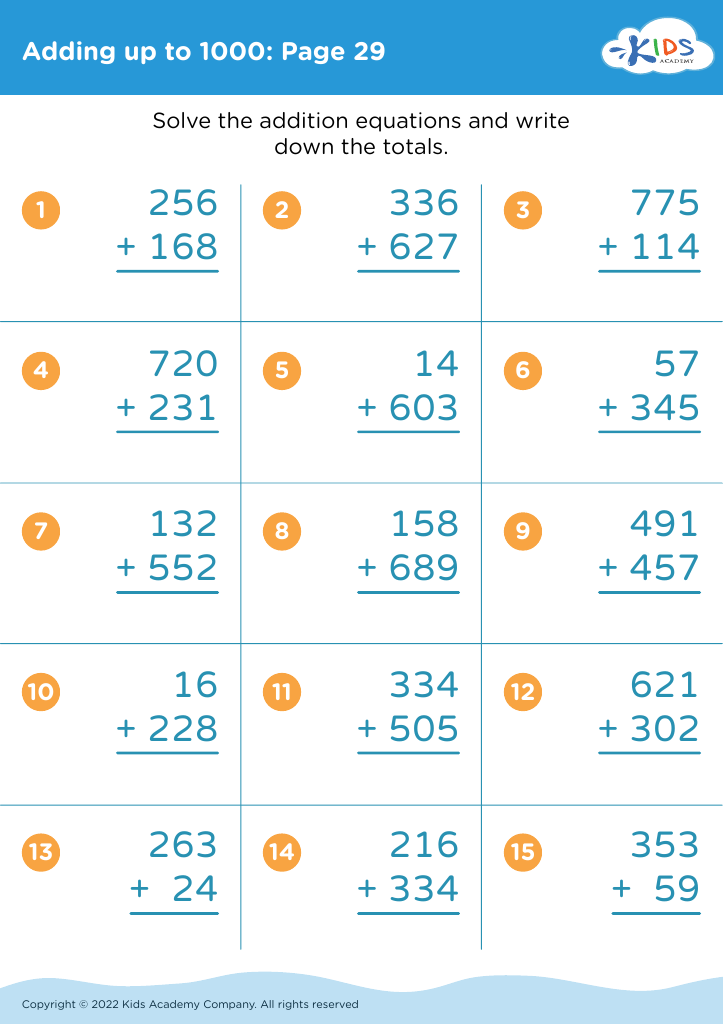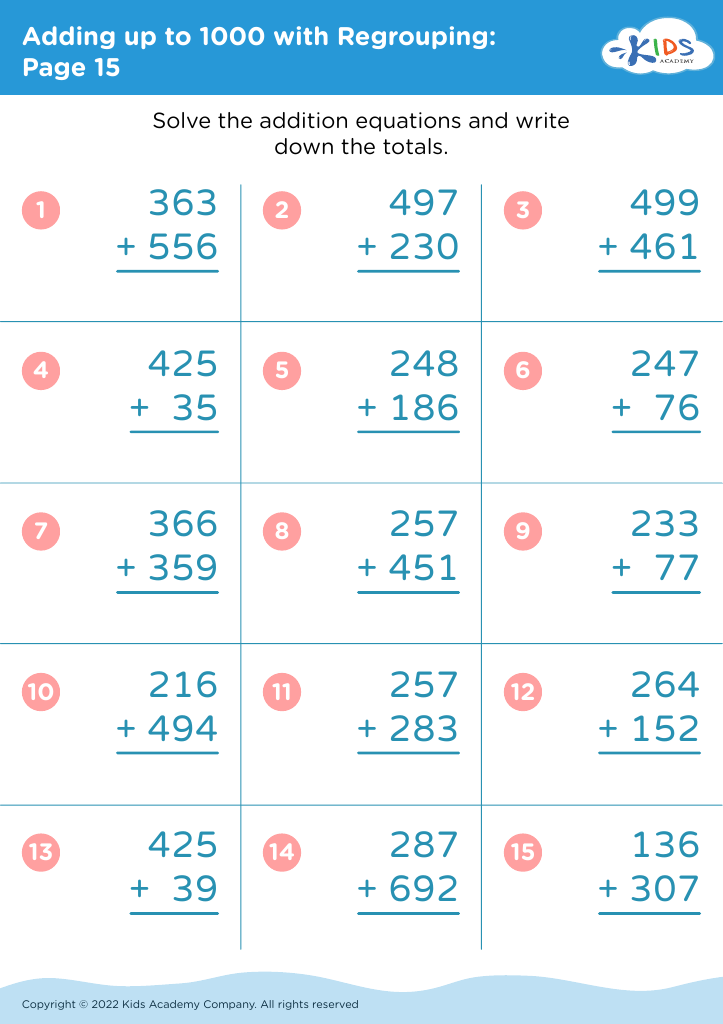Time conversion skills Addition & Subtraction Worksheets for Ages 5-7
3 filtered results
-
From - To
Enhance your child's math skills with our engaging Time Conversion Skills Addition & Subtraction Worksheets, specially designed for ages 5-7. These worksheets focus on teaching young learners how to convert time across different formats, refining their understanding of addition and subtraction concepts. Through fun illustrations and interactive exercises, children will practice essential skills while developing a strong foundation in mathematics. Introducing time conversion not only enhances their problem-solving abilities but also promotes critical thinking. Perfect for classroom use or home learning, these worksheets provide a hands-on approach to mastering time concepts in an enjoyable and effective way. Start their math journey today!
Time conversion skills, particularly with addition and subtraction, are critical for children aged 5-7 as they lay the groundwork for several essential life skills. At this stage, children are beginning to develop their understanding of time, which serves not only as a foundational skill in mathematics but also in daily activities and routines.
By mastering how to add and subtract time, children learn to manage schedules, understand durations, and make informed decisions about their activities, fostering greater independence. For instance, calculating how long until an event or how long an activity lasts encourages critical thinking and problem-solving abilities.
Additionally, these skills support cognitive development and enhance numerical literacy. Engaging with time-related math helps reinforce basic addition and subtraction concepts, laying the groundwork for more complex mathematical functions they will encounter in later grades.
For parents and teachers, fostering a strong understanding of these skills through practical applications — such as using clocks in daily routines or playful activities focused on time — enriches children's learning experiences and prepares them for future academic challenges. Ultimately, a strong foundation in time conversion promotes better organizational skills and increases confidence, making it a valuable educational focus for young learners.























